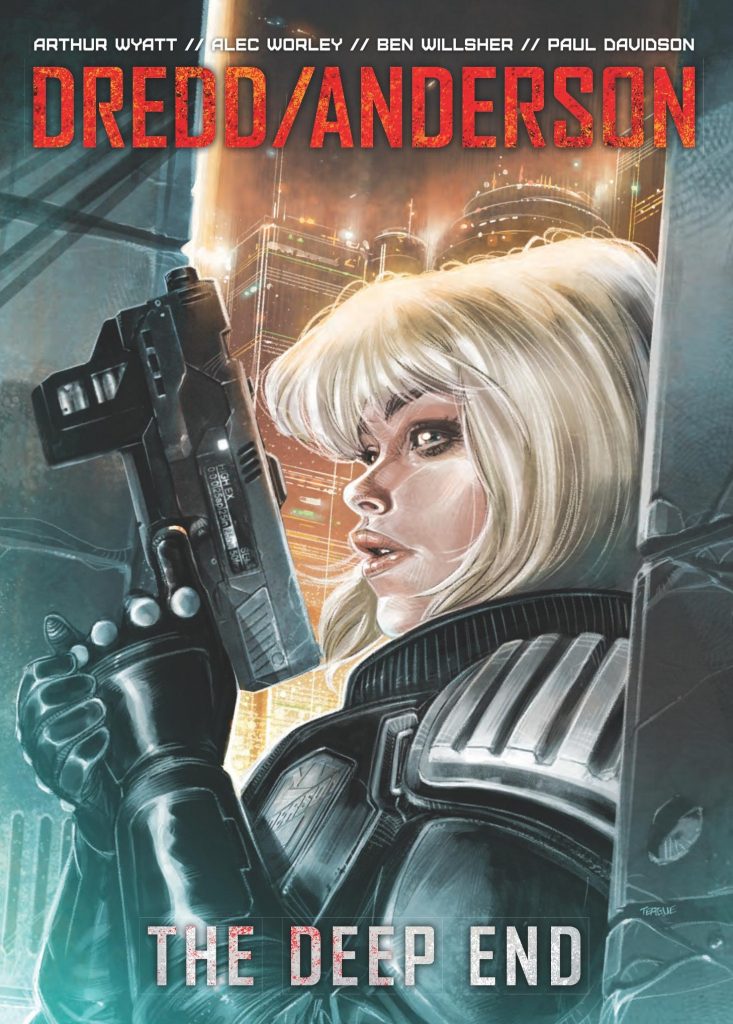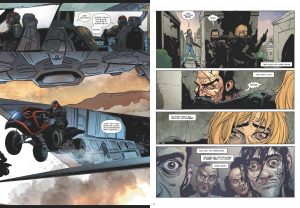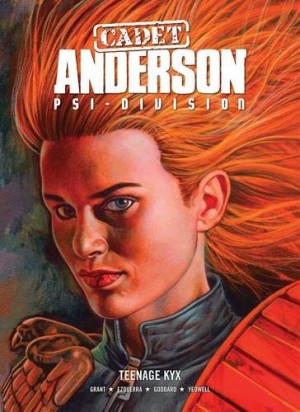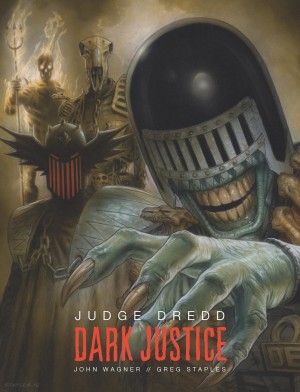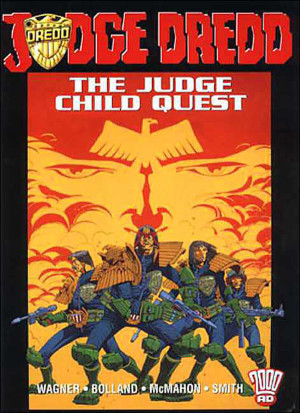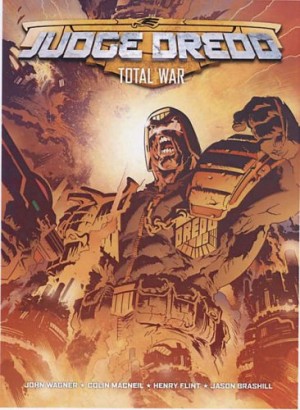Review by Karl Verhoven
The Deep End is a piecemeal Judge Dredd collection, promoted on the basis of the two part title story being a sequel to the 2012 Dredd movie, but it could equally be canonical back story featuring a young psychic Cassandra Anderson.
Alec Worley’s script focuses on the insecurities and self-doubts she has, now on her second case, involving drug-dealing gang members and a seeming demonic possession, that a matter Worley toys with. Anyone familiar with the highlights of Dredd’s world will recognise what he’s getting at, but it’s carried out in a manner that doesn’t impact if you’re unaware. If her self-realisation is too rapid and convenient, Worley drags the tension out well beforehand. Artist Paul Davidson’s vision is more connected with the Dredd movie, convincingly portraying a society not too far removed from ours rather than the established comic version of Mega-City One.
Worley and Davidson are also responsible for the following ‘Judgement Call’, which again can be seen as following the movie version of Anderson’s character or be taken as canon. This is an absorbing character study, following Anderson in action and stripping back who she is and her wider concerns, with her career in the balance.
Dredd doesn’t appear in either story, but earns his title credit via participation in the collection’s longest piece. ‘Dust’ touches on so many matters endemic to Dredd’s world that at times is comes across as a very effective pastiche, stitching together the familiar, but it’s better than that. Arthur Wyatt follows the tried and trusted pattern of mysterious murders in a time of crisis leading to something far more menacing and taking Dredd and colleagues out of their comfort zone. The title is derived from the periodic dust storms that endanger Mega-City One, sweeping in from the Cursed Earth and enveloping everyone with no concern for right and wrong. This dust, however, appears to have been controlled somehow.
The idea of illustrating many pages of dust might not appeal to every artist, but Ben Willsher takes it in his stride, and his skill efficiently conveys a threat that isn’t going to be stopped by firearms. The dust isn’t the only threat to the judges, and Willsher’s illustrations of industrial complexity provide a good backdrop to the later stages. Wyatt’s tale is one of greed, bigotry and violence, but that’s well concealed at the start, as the judges have to piece together connections as they figure out why certain people are being targeted. Wyatt’s not always convincing with some clunky dialogue, yet also capable of decent Dredd epigrams such as “The law is the law. That doesn’t stop at the city boundaries”. When his foe is eventually revealed it’s someone constructed for the long haul, a viable menace who could be used again with some consideration. Their Achilles Heel is too random, a method of ending the story rather than a process of logical thought, but that’s only over the final panels of what’s otherwise a page-turning thriller.
Combining Dredd and Anderson in this fashion without them every crossing paths makes for a strange collection, but ignore that and The Deep End presents three tales of judges all worth reading. Dredd’s movie world closes off in Final Judgement.
